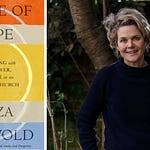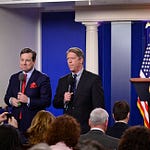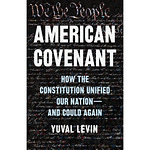Last episode, we talked with Joe Trippi, who played a key political role in the 2004 Howard Dean campaign, which was the first Internet-driven campaign. This week, we have Nicco Mele, who was part of the team helping to run Dean’s cutting edge digital operation.
Nicco has had an eclectic and distinguished career for someone who is only 42. He has been deputy publisher of the Los Angeles Times, and is now the director of the Shorenstein Center on Media, Politics and Public Policy at the Harvard Kennedy School.
But in 2012, Mele wrote a book called “The End of Big: How the Digital Revolution Makes David the New Goliath.” It’s an innocuous sounding title, and at the time, I think Mele’s warnings about the dangers of the Internet were lost in what was generally still an optimistic time. But early in that book, he wrote that the Internet was opening the door to “chaos, destabilization, fascism and other ills.”
“Radical connectivity is altering the exercise of power faster than we can understand it,” he wrote.
Now, he says, many of the dark prophecies from his book have come truer than he had anticipated, and there is a long way to go to repair the damage. “In many ways since I wrote the book things have come more apart,” Mele said. We are stuck, currently, with a reality where there are “two worlds” existing side by side as it relates to power and influence, he said.
There is the old institutional world, where hierarchy, experience, expertise and tradition are core values. And there is the new connected world that is tearing down the old, where power and influence are far more diffuse and broadly shared. The two need to be connected and fused, he said.
Mele said there remains a deep need for new institutions to be built that embody the values of the modern online world, but resurface some older values as well. For example, the idea of an “establishment” existing at all is often decried as inherently undesirable, and institutions are then vilified as tools of a corrupt elite. But, Mele said, that is a bad bargain for everyone. He called for a “new establishment.”
As I thought about Mele’s comments, it put the candidacy of Democratic presidential candidate Pete Buttigieg in a new light. I have been skeptical that someone as young as 37 can have the experience needed to run the executive branch. But the paradigm that Mele and I explore here is food for thought to push back against that skepticism. Mele in fact talked at some length about this to Vanity Fair’s Peter Hamby in a piece that ran in December, which I recommend.
Outro Music: "Avant Gardener" by Courtney Barnett
Support this show http://supporter.acast.com/thelonggame.
See acast.com/privacy for privacy and opt-out information.













Share this post